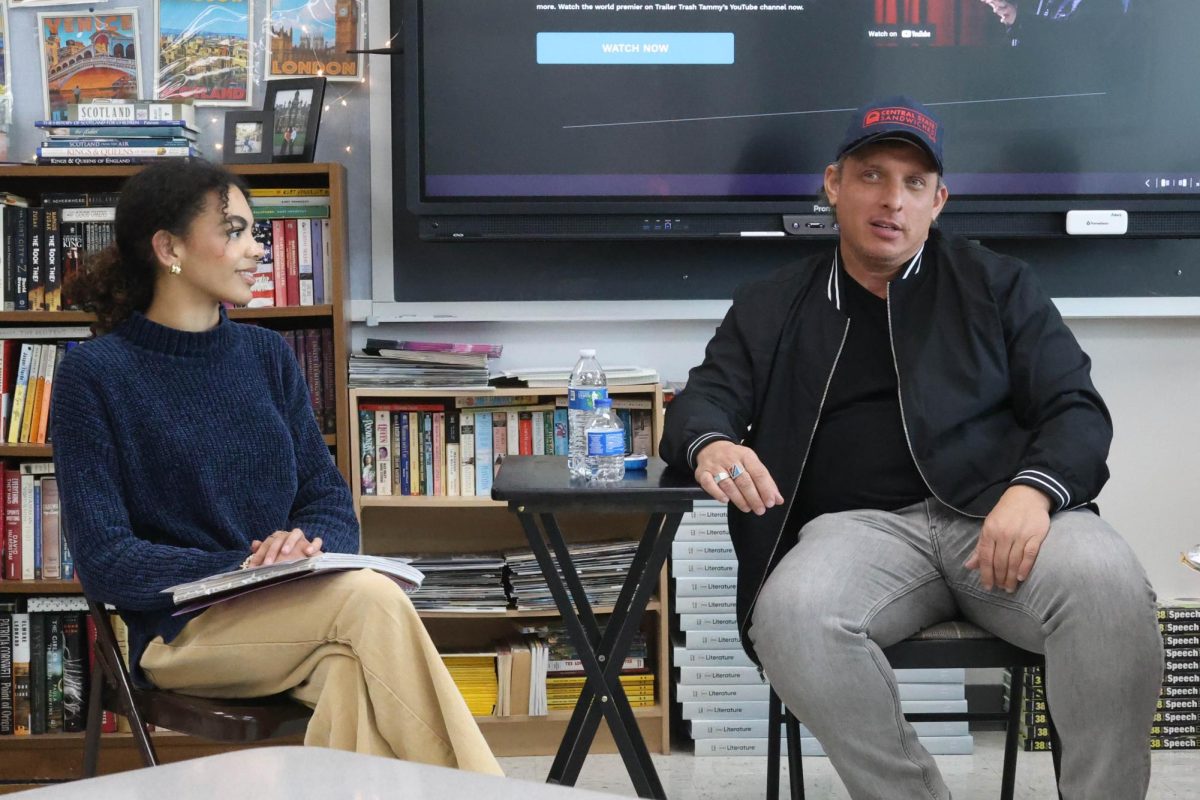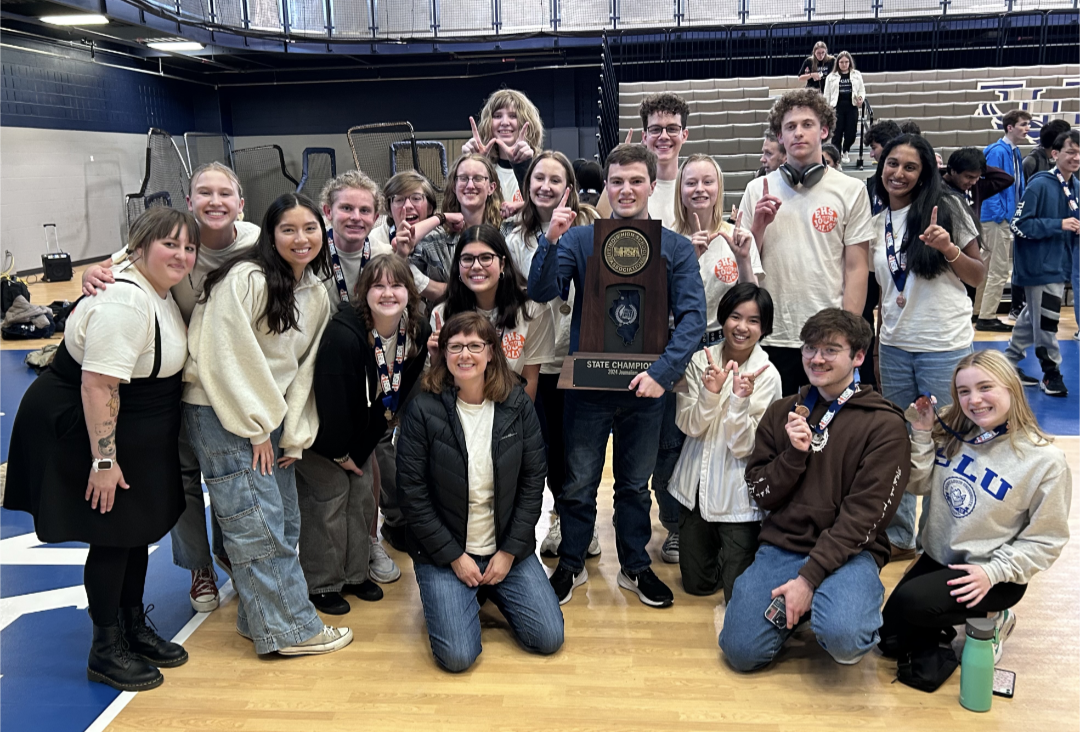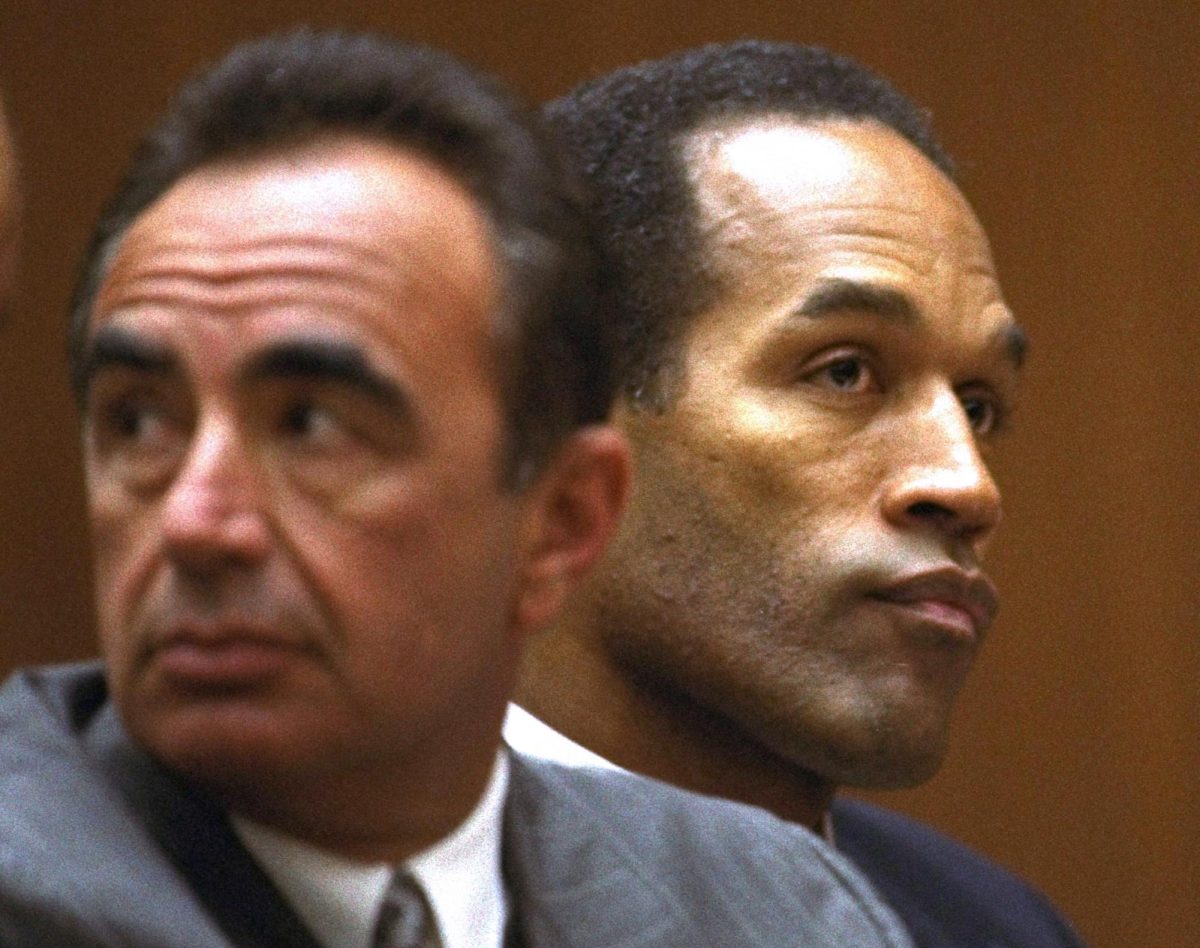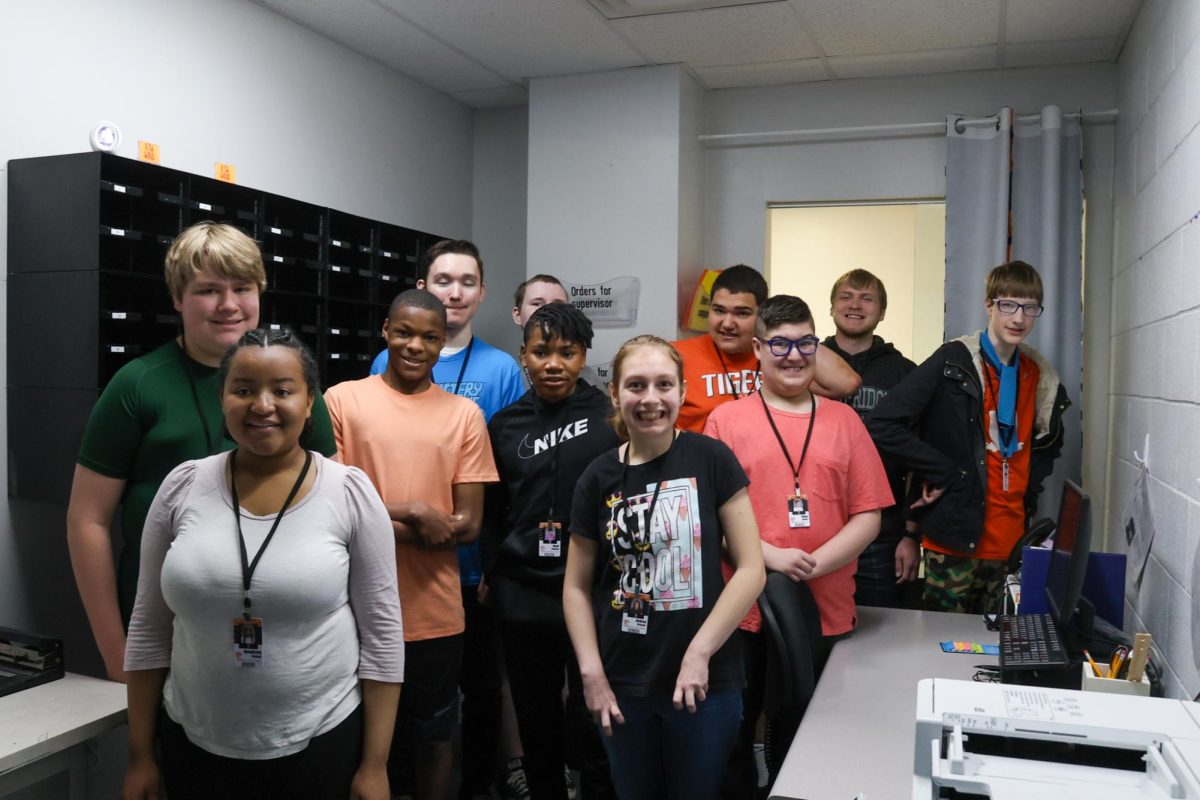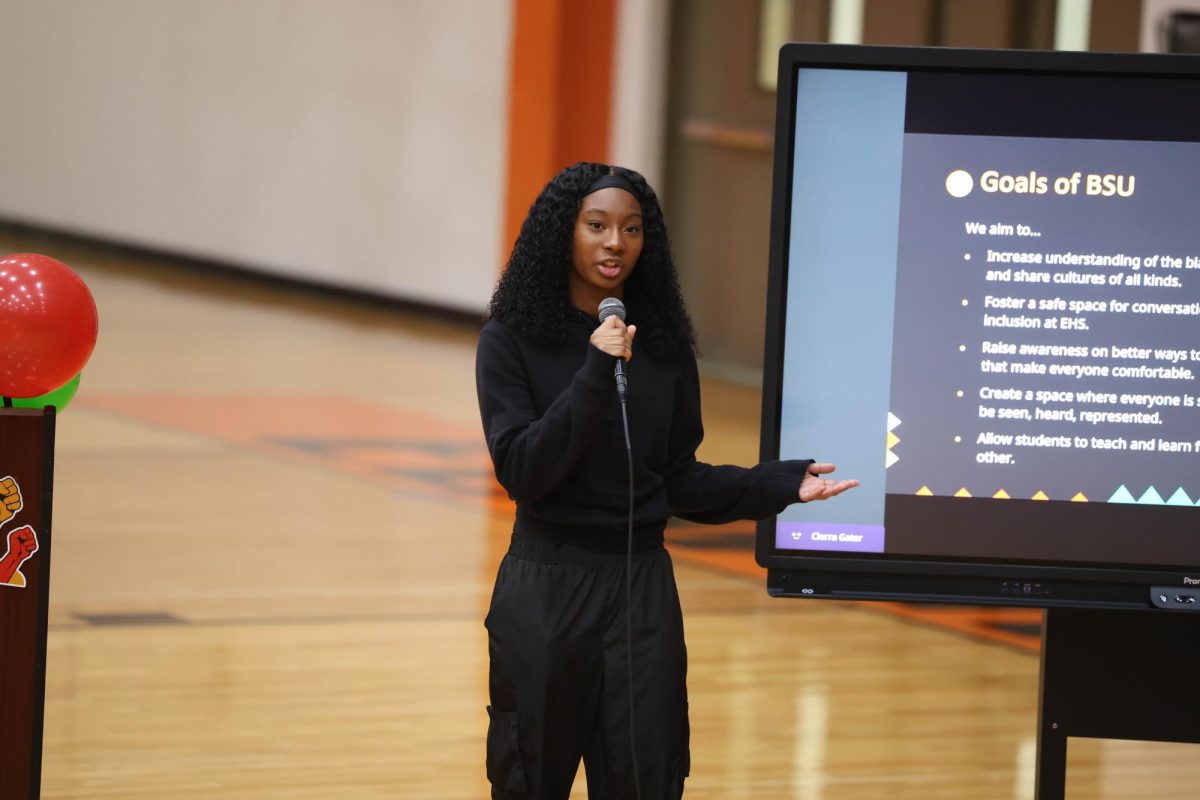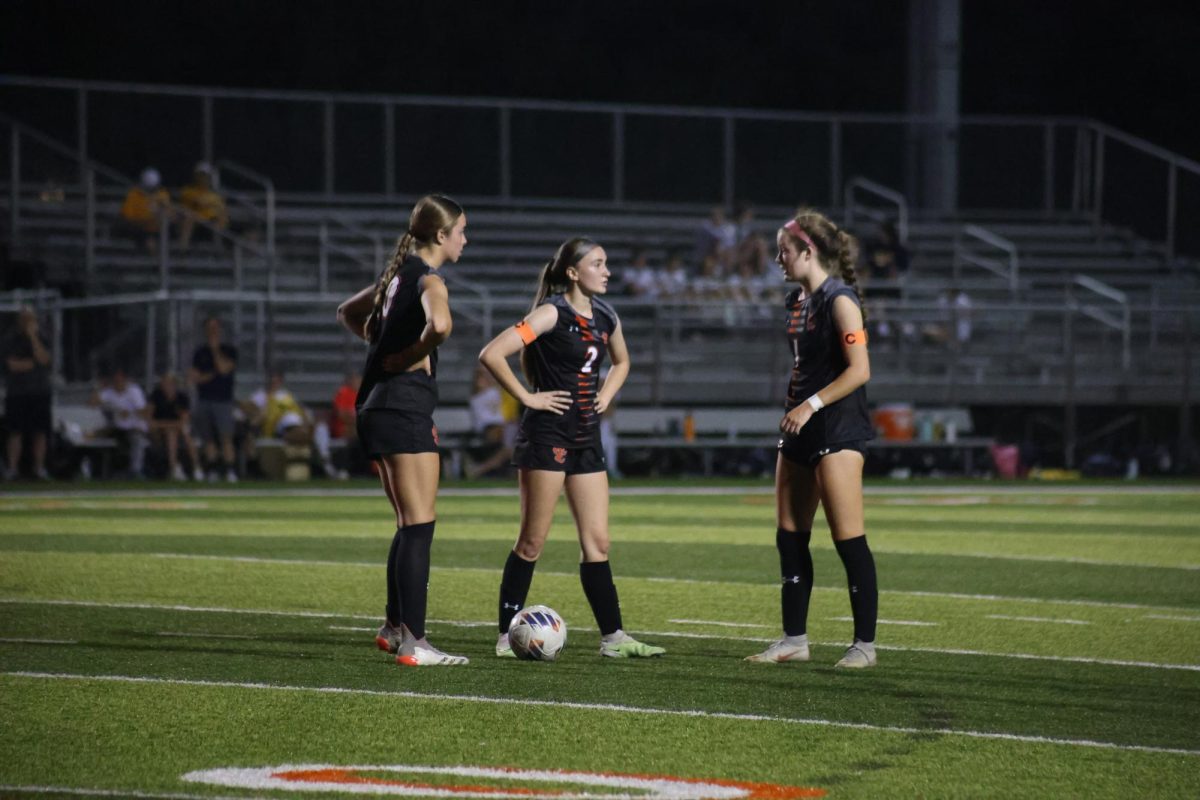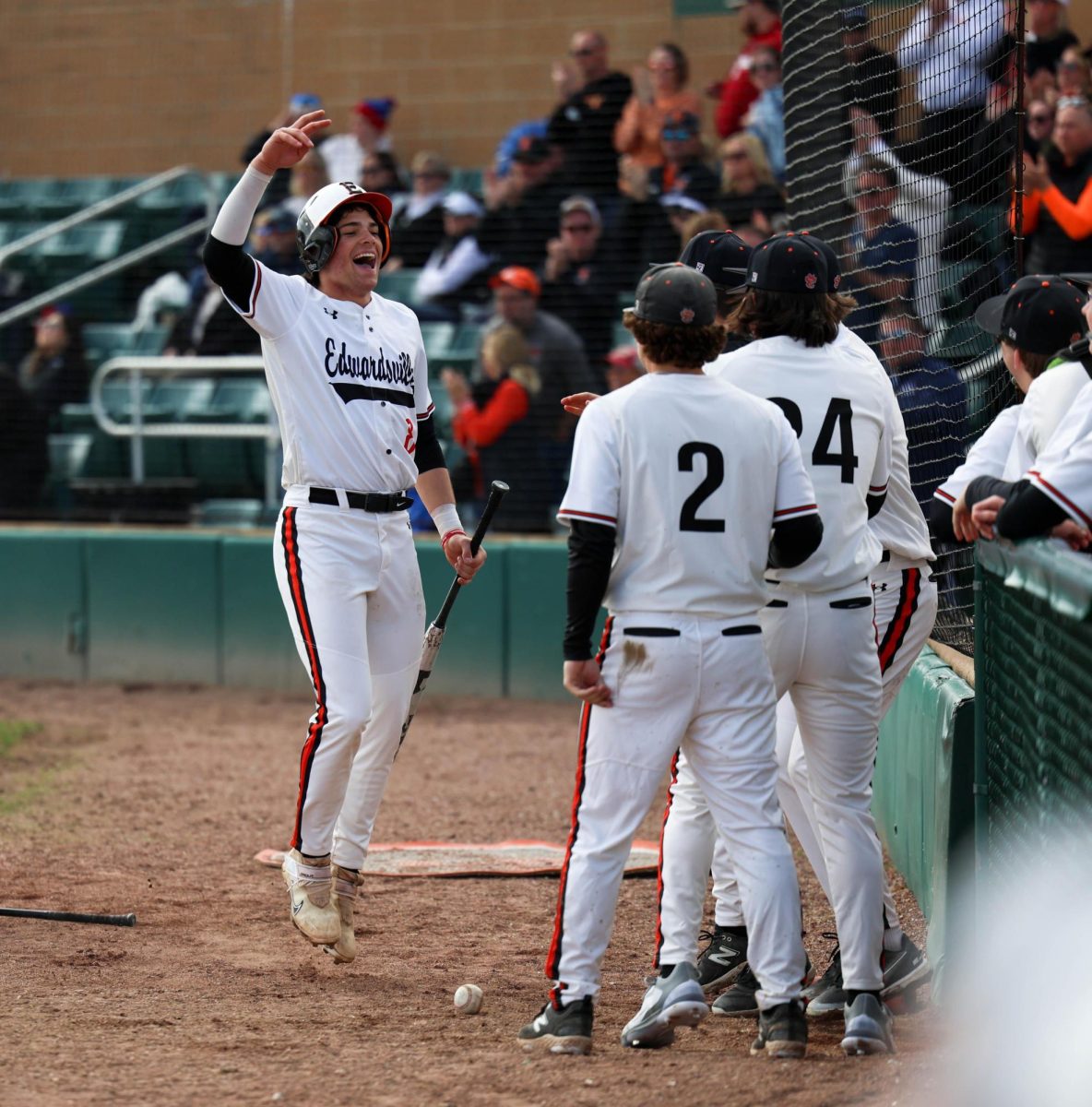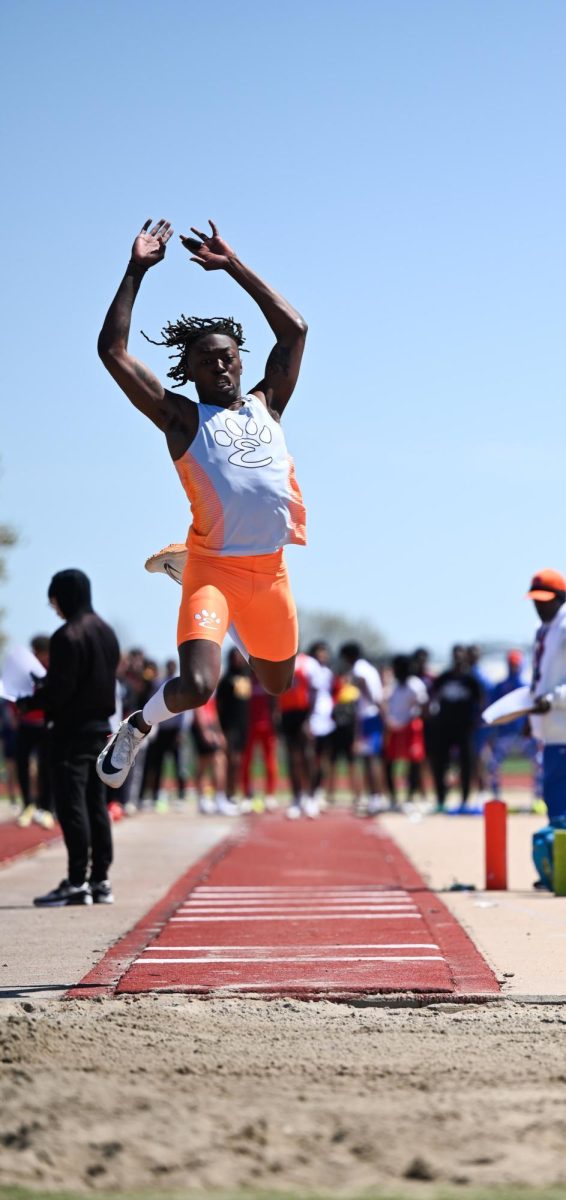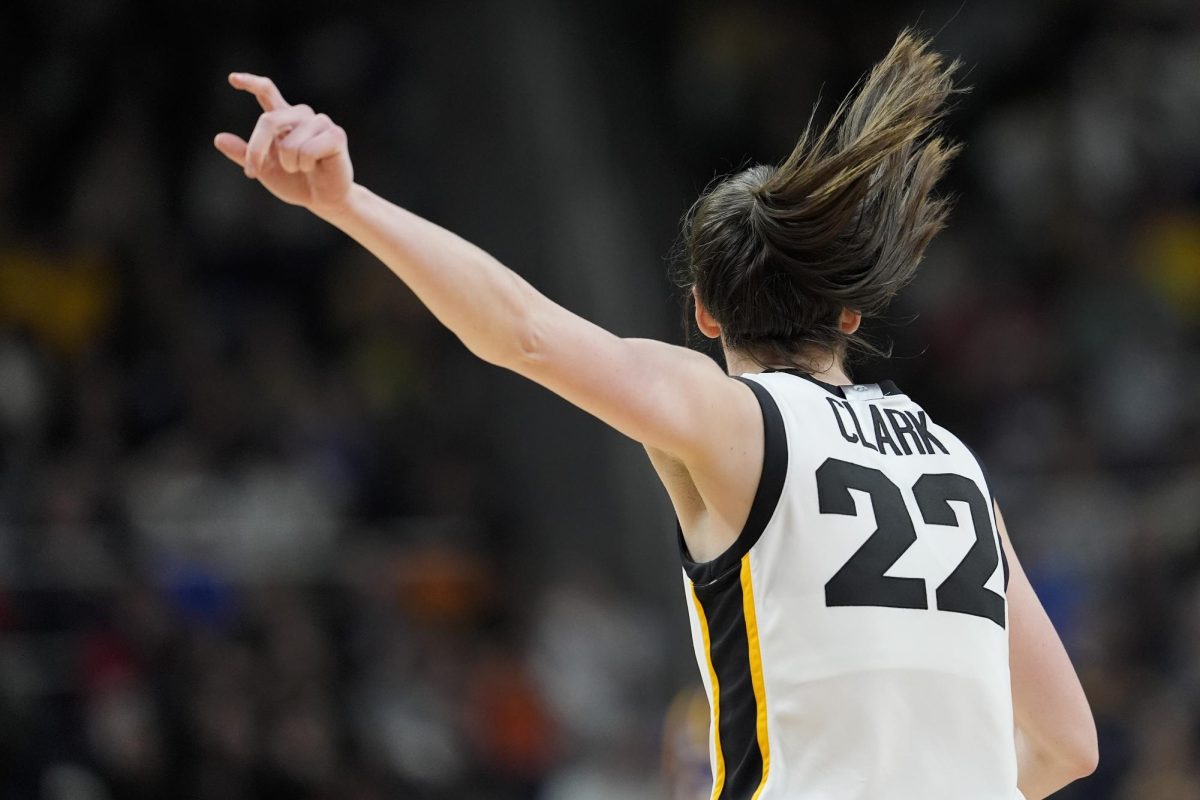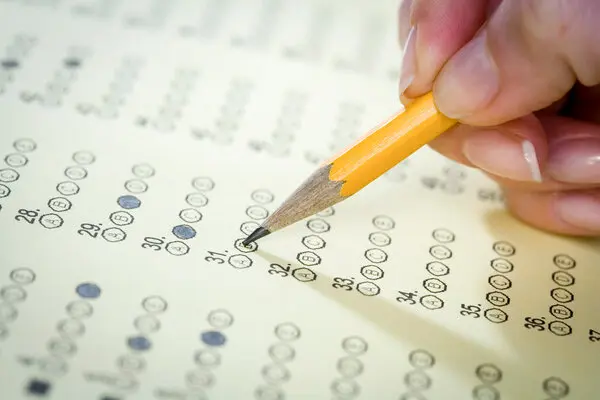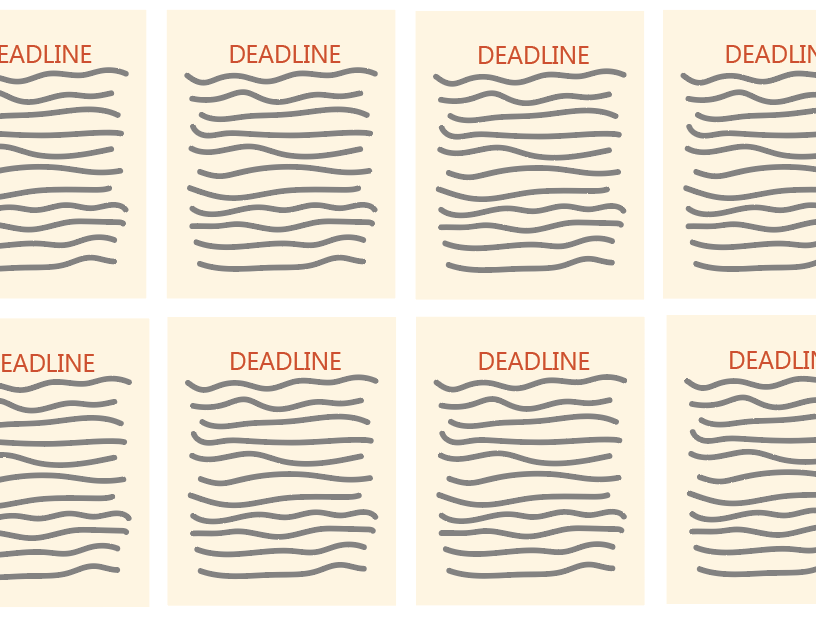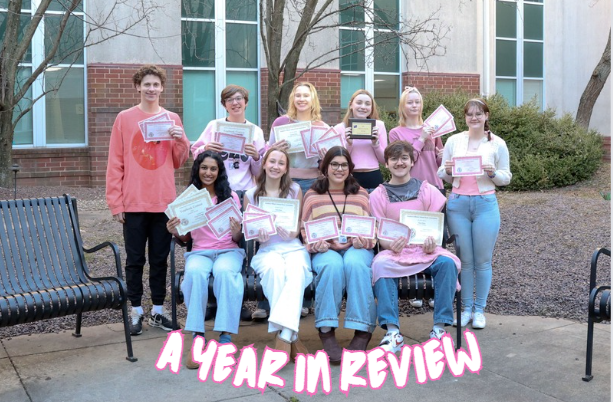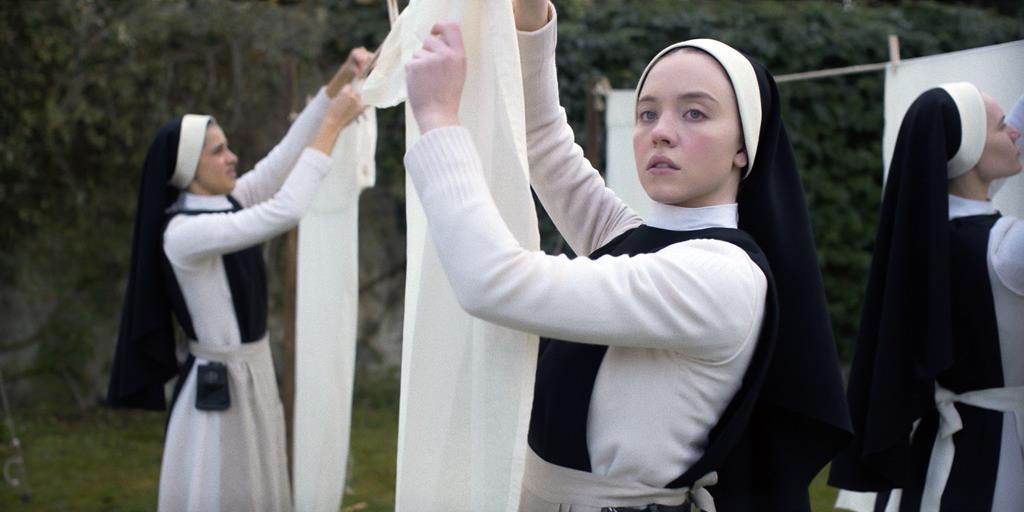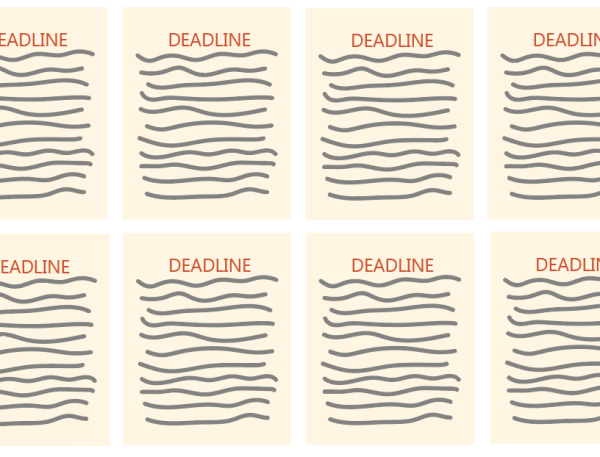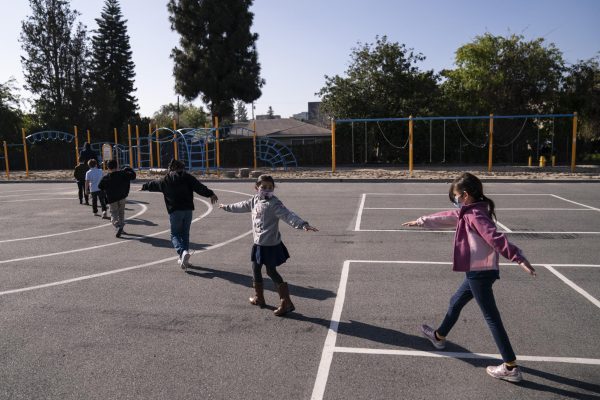Burned Out From Your Sport? Me Too.
Signage at the headquarters of the NCAA is viewed in Indianapolis, March 12, 2020. Courtesy of AP Newsroom.
February 3, 2023
Evenings are spent at practice. Weekends consist of games and meets. There’s seasonal training and offseason conditioning with almost no time off. School, practice, games repeat.
I’ve run track since I was in sixth grade. I had played other sports, but track was my thing. I loved running and I was good at it. I won my races. I went to state. Anything I could run, I ran it. Anytime I could run, I ran.
Seven years later I still run track. But after a series of injuries, Covid-19 and the never-ending cycle of practices and meets; my love for the sport that used to be my entire life began to dwindle. After all of my years of running I had fallen victim to an athletic burnout.
According to the NCAA, overtraining results in a state of constant fatigue, placing the athlete at risk for developing burnout and mental health issues, especially when the athlete feels there is no escaping the time and physical demands of their sport and school.
What used to be a fun way to get physical exercise and hang out with friends began to turn into a chore. As physical and mental demands began to pile up, my enjoyment began to fade away into feelings of anxiety and exhaustion. And I’m not alone.
In a survey of 166 EHS students, 85% said they experienced feelings of stress due to their sport, and 67% have said they quit or considered quitting.
“I started golf when I was about 6 years old and ended up quitting after sophomore year,” junior Caitlyn Dicks said. “I really enjoyed it, and I absolutely loved my coach and teammates. But eventually it just started to feel like a chore instead of a sport.”
According to NATA, athletic burnout can have a physical and mental toll on the athlete and can impact their lives and performance on and off the field. These feelings of burnout can lead to loss of motivation, decreased performance and a worsened mental health state.
So, the key to resisting an athletic burnout? Balance.
“Don’t overwork yourself,” freshman baseball player Grant Peterson said. “Find your passion, make that your focus. Take breaks where you can get them, but keep working on the field and in school.”
But no matter the balance, sports are stressful, and those feelings of stress are hard to escape. When you play a sport there’s pressure. There are expectations to be met. Pressure to do well. The expectation to win. Pressure from teammates, pressure from parents and, most of all, pressure from yourself.
“I put so much pressure on myself, and no matter how many times my team, coach and parents told me to just have fun, I still stressed out about it. I just got burnt out,” Dicks said.
Some athletes self-induce their burnout with personal motivation for success. Every lost game equals another hour in the gym. This type of athlete applies more personal demands on their physical conditioning or is fully consumed by sports participation as a way to fulfill their identity as an athlete.
“I worked tirelessly at the gym and at practice and it really started paying off,” said junior Kelsey Renth. “Soon I was spending a lot of my free time in the sport. I didn’t really do much else. It was school and volleyball.”
But pouring all of your energy into your sport can eventually get physically and mentally exhausting.
“If I didn’t do well at practice or a game it felt like the end of the world… volleyball is my world and I based my worth off of that,” Renth said. “If I wasn’t doing good on the court then I wasn’t doing good off of it.”
It’s easy to say, “give yourself a break.” To balance and be aware of the dangers of overworking. But for many athletes it’s easier said than done, and I’m still trying to work on those things myself.
So, if I had any advice, it would be to do what’s the healthiest. Quit if it’s too much, or keep playing and work on finding your balance. For me, I’m still running. After all, it’s only one more year.


